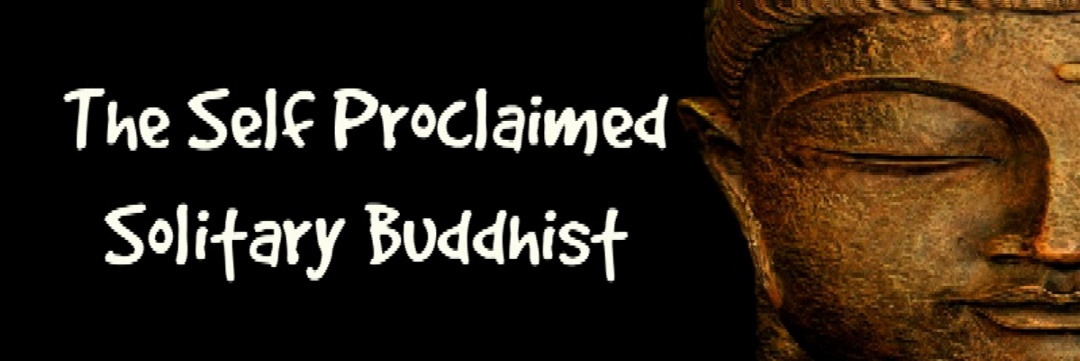Ever wondered what it would be like to have the ancient wisdom of the Buddha to guide you through the dating process?
If the Buddha Dated: A Handbook for Finding Love on a Spiritual Path by Charlotte Kasl, Ph.D., since it was published in 1999 it has been loved by those seeking relationship advice.
If the Buddha were to give dating tips, they might be a little confusing to some modern-day folks. So consider this a Top 10 CliffsNotes, each with modern day explanations.
If the Buddha Dated: A Handbook for Finding Love on a Spiritual Path by Charlotte Kasl, Ph.D., since it was published in 1999 it has been loved by those seeking relationship advice.
If the Buddha were to give dating tips, they might be a little confusing to some modern-day folks. So consider this a Top 10 CliffsNotes, each with modern day explanations.
- “When you say goodbye to someone or decide not to see them again, remember you are but a moment in their story. Make it a story that doesn’t leave a scar.” Translation: Do whatever it takes to leave on good terms.
- “Equality doesn’t need to mean that both people earn the same amount of money, have equal status, or equally good looking. It means they value each other as equals when it comes to making plans, making love or making decisions. They have an equal voice. One should not have to sacrifice himself, or herself, to the other.” Translation: Equality is not based on materialistic things or statistics. Equality is based on shared values, shared communication, and shared self-respect.
- “In an unequal relationship, because the subordinate mate gives in reluctantly and complies, the dominant ones are never challenged to reflect on themselves. There is little or no growth, flexibility, or no forming of the “us” bond that brings two people into spiritual union.” Translation: In equal
relationships, both people are challenged to grow and evolve together, rather than one person always pushing for the other partner’s growth. - “Things are always changing—our thoughts, cells, hormones, hairline, consciousness, relationship, and the landscape around us. Instead of trying to freeze the present moment and hanging onto it, we need to remember that life is a process of constantly letting go.” Translation: The only constant is change. Every present moment is a chance to embrace the newness and let go of the past
. Nothing is permanent. - “To be loyal to our journey is to know the rhythm, tone, and pulse of our essential inner world- the song that is ours alone. When two people bring the richness of their inner music to each other, they bring the possibility of a
new composition, of counterpoint, harmony, voices weaving together creating a magical composition. If we’re disconnected from the music of our essence and attempt to find happiness through another’s song, there will be a dependency and relationship without harmony.” Translation: We must know and accept who we are fully before we enter a relationship, or else we end upin a co-dependent relationship. When two whole people join in a supportive relationship, the results can be magical. - “If we have the belief ‘I’ll always be abandoned’ we create situations where we’ll be abandoned, and forget to notice when people are loyal friends. Our task on the spiritual path is to stop repeating the same old stories and become aware of all the ways we keep proving our stories are true.” Translation: Thoughts become things, and we become our thoughts. Choose to write your own fate for better results.
- “We can either bargain, hold back, and hang onto comfort and security, or we can take a deep breath, and say take me, and leap into the fire.” Translation: Taking a risk is often worth it, especially in love.
- “There are so many dating books with numerous rules about the right thing to do and say when dating. On the spiritual path, the ‘rules’ are simple. Simply ask yourself, am I being guided by my rigid ego” Translation: Ego-driven actions love rules. The spirit of love needs no rules to guide us.
- “Ego says I want someone to fill me up. Non-ego says I’ll have someone to help me wake up, to challenge my blind spots and be a companion and playmate on the journey. Translation: If we believe and live as already-full beings (complete), we don’t look to others to fulfill us.
- “Another aspect of loving kindness is to remember that it’s not being free of
imperfections that’s crucial to relationships, it’s being honest about our faults and mistakes. When we accept our humanness we become able to apologize (not grovel) for having been rude, insensitive, or dishonest. Our apology to another is a form of compassion to ourselves because it signifies acceptance. This is at the heart of intimacy.” Translation: By honestly accepting our faults and mistakes and apologizing with sincerity, we practice compassion towards ourselves and others.




